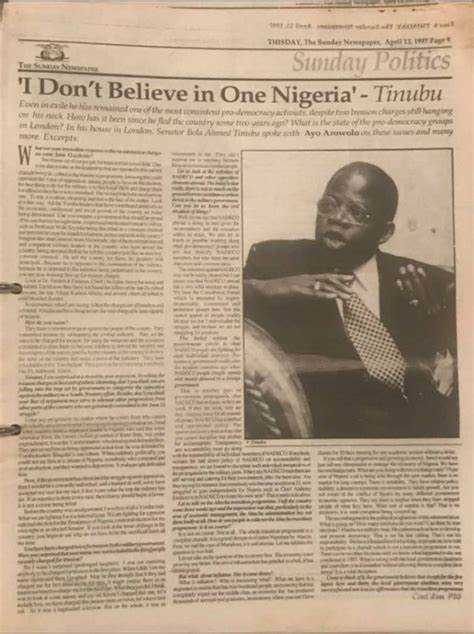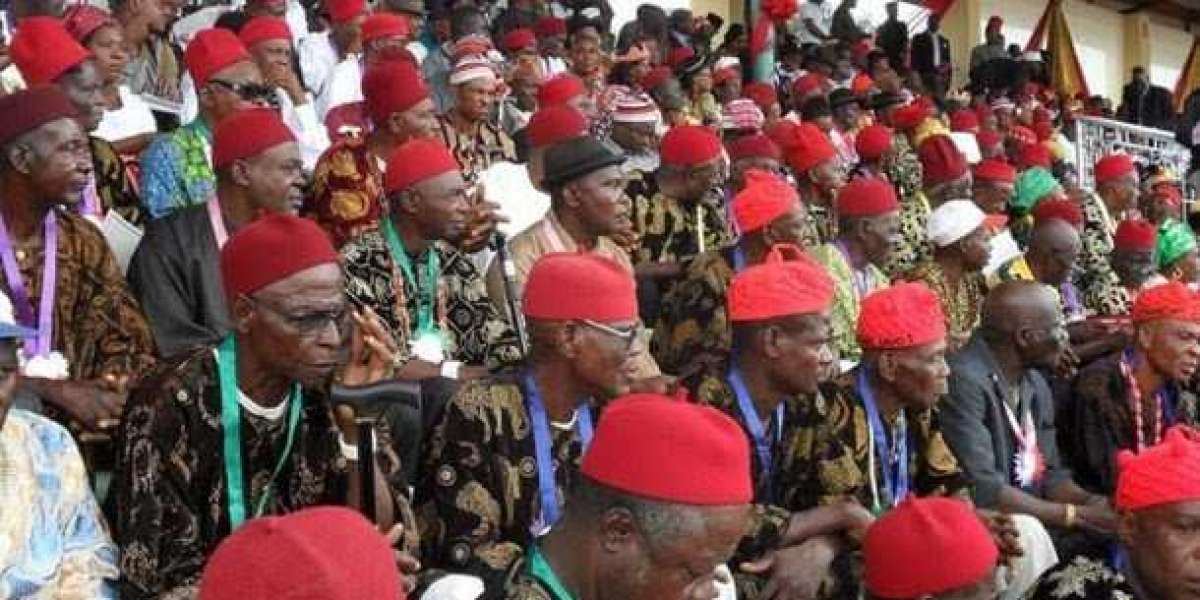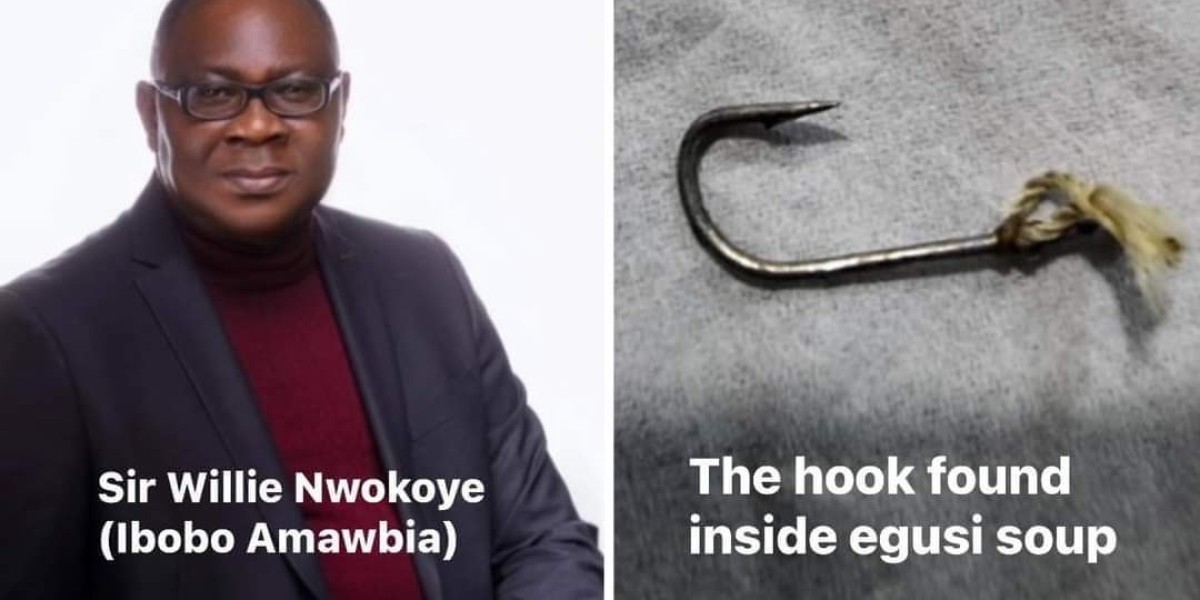It has become a recurring argument and a matter of great concern on why a candidate from the Igbo extraction seems to be a taboo for the national presidency.
This anomaly cuts through unfair appointments that see a continued dominance of strategic national positions by a specific tribe.
The lingering and unsolved issue of marginalization in a democratic state as Nigeria has raised questions on integrity on the stand and place of the southerners on the national table.
The unjustified act of suppression on the Igbos could be traced back to the civil war which makes it justifiable to say that the generally accepted announcement; ‘no victor, no vanquished’ was a sham as some ethnic groups are portrayed as the lords of the land where the minority groups are considered a flock of sheep that can be forced to follow any path the cabal deems fit for them.
Fifty years after the three years civil war which lasted from July 1967 – January 15, 1970, the existing tribal wars, the constant cries of prejudice, discrimination, and marginalization of local groups continue to give us a glimpse of Nigeria’s future and how dark the road ahead seems.
It sounds funny to discover that Nigeria is a nation with over five hundred tribes and five hundred and twenty-one (521) languages, but the clamor for power seems to circulate around the Igbo, Hausa, and Yoruba, with some groups having great dominance over the other.
Does national unity have a place in Nigeria’s democracy?
With the incessant rise of nepotism with lopsided and biased appointments which has been favoring the Hausa and Fulani community, it becomes obvious that Nigeria is taking a dangerous slide to tribalism at the disservice of other regions of the country.

Discrimination on the Igbo Extraction- How did it begin?
The issue of discrimination on the Igbo Extraction could be traced back to the colonial times 1807, till the amalgamation process (1914-1954) which got Nigeria a protectorate and a colony.
The merge of the northern and southern protectorate was an unfair political deal as the southern protectorate was used to compensate for the debts of the north. The tax deficits, rejected tax trades, resistance to coin balance, accumulated debts were settled with the coalition of the north and the south as the south had a lot of surplus in their accounts.
This scenario seems to be playing out so well even after colonialism as major natural resources in the south still becomes a major supply channel for the entire nation with less infrastructure and human development to compensate for the drain.
The case of Niger Delta and its crude oil has become a major fiasco that buttresses the fact that southerners are not only marginalized politically but also economically, socially, and intellectually at a comprehensive and sustained scale.
This issue of fairness is not an matter of misconception or a spin of conspiracy theories as it remains incomprehensible and unbelievable as to why a region that supplies the nation with 1,737.4 barrels of crude oil per day with a proven crude oil reserve of 36,890 million barrels as of 2020, contributing over 8.73 percent of the nation’s GDP remains in total waste with litters of bad roads, abandoned national projects, poor education and health structure and a bad security network that has constantly proven to be against the people than for the people.
However, in all these, it sounds wise to ask what is the real problem to all this. Is the Igbo extraction forbidden to take up national positions or her people portrayed to be incapable to handle major national positions in the country?
Why Igbos might not rule Nigeria
· Lack of Unity:
The decentralized system of government amongst the Igbos poses great disadvantages as power is dispersed and distributed to different heads and groups with the absence of a central authority. This notable system of government makes it difficult to gather
the Igbos to an umbrella, push a campaign and achieve one goal, as everyone seems not to be comfortable with the other, and every Igbo man desires to be a voice than to be a listener and stick to instructions.
The issue of cohesion amongst the Igbos calls for comparison with other Tribal groups like the Afenifere, Arewa, and the Igbo body, Ohaneze Ndi Igbo, as the ‘divide and rule’ system manifests as the acceptable mode of living amongst Igbo people.
With the constant rants and attacks on Ohaneze Ndi Igbo on their stand on the affairs of Igbos, the formation of the Indigenous people of Biafra IPOB seems to be a better way out but with the recent happenings and divisions hitting the group which boils down to quarrels amongst its leaders makes it inarguable to believe that unionism will be a difficult thing to achieve in Igbo land, and until Igbos can create one voice, decide on a goal and support it without doubts or betrayals, they might not be able to produce a national figure.
· Elites vs. violent voices:
The Igbos have been known to produce notable figures with outstanding exploits in their areas of endeavor, but it ends on a sad note realizing that these faces have little or no influence on the political system of the region.
The lists of Igbos with significant exploits on national and international grounds are numerous but unfortunately, the impacts are nowhere to be found at home.
Ranging from the literary world with the likes of Chimamanda Adiche, business tycoons like Innocent Chukwuma of Innoson motors, economic strengths like Godwin Emefiele, Ngozi Okonjo Iwela, Obiageli Ezekwesili, Pius Okigbo, down to an endless list of statesmen, it remains a puzzle as to why a region with productive minds still allows the violent voices in its midst to be on the forefront of national delegations and deliberations with the elites going dumb on crucial matters and carrying on with their individual lives as if nothing is going wrong.
If the elites lack a voice, and the political faces lack national relevance, how will the region be taken seriously?
The Igbo tribe has been successful to produce commendable politicians like Dave Umahi of Ebonyi state and Peter Obi of Anambra state, but are these men influential enough to strike a win in at least five non-eastern states like Lagos, Kano, Kaduna, Katsina, and Jigawa?
Will there be a heavy endorsement that cuts across national unity?
The reasons why the Igbo presidency will always remain a mirage are unending. Maybe the problem might not necessarily be the absence of a favorable platform to contest, but Igbos are not yet ready and equipped to occupy relevant national positions in the country as their northern counterparts do.










Israel Unya 4 yrs
Are the Igbos really not ready to lead Nigeria?
I don't think so.